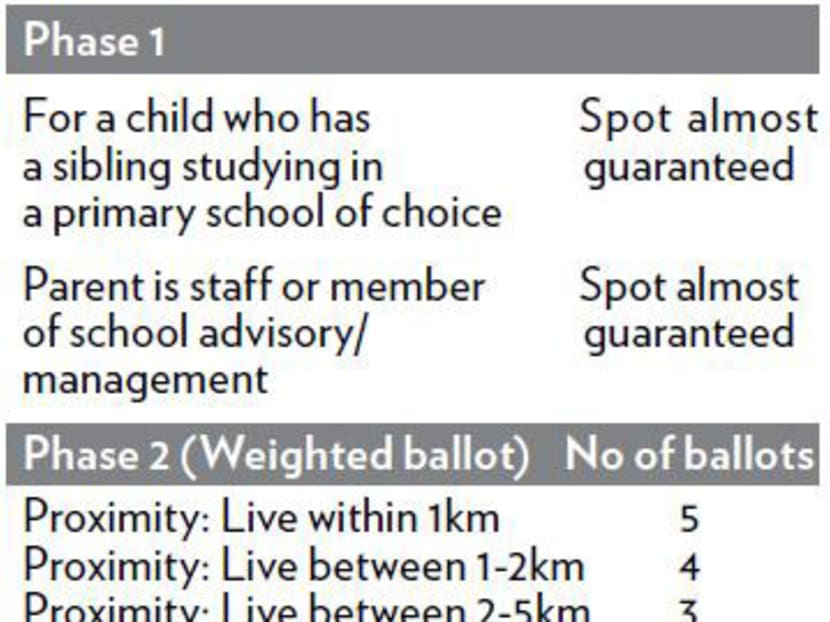Weighted ballot system could make Primary One registration more inclusive
The laudable aspiration of “every school a good school” is being thwarted by realities on the ground and the existing Primary One registration framework (“Primary One registration to start on July 3”; June 20).
The laudable aspiration of “every school a good school” is being thwarted by realities on the ground and the existing Primary One registration framework (“Primary One registration to start on July 3”; June 20).
The existing system tends to favour children from middle- and upper-class families, which reinforces or maintains inequalities among schools and causes unnecessary stress for parents.
I feel that this is one of the contributing factors in “parentocracy”, a phenomenon generating discussion and concern of late. A weighted ballot system, in place of the existing framework, would allay some of the problems.
For example, a child whose parent is a staff member of the school would have Phase 1 priority and almost certainly be guaranteed a place.
A child who does not meet the Phase 1 criteria and lives 500m from the school would have five ballot tickets. A child who lives 1.2km from the school and whose parents have clan association would have six ballot tickets.
A child who lives 8km from the school and whose parent is an alumnus would have two ballot tickets.
This system has several advantages. First, more weight would be given to proximity, which is the most pragmatic consideration.
With the element of chance and no admission guarantees in Phase 2, it discourages kiasu (afraid of losing out) behaviour such as buying property near schools of choice or joining a church/clan with an agenda. It limits the advantages wealthier parents have.
It could also dilute the concentration of upper-middle-class children in branded schools, reducing elitism and promoting egalitarianism. It is neither a pure ballot based solely on luck nor is it a system that confers guaranteed admission in Phase 2.
Hence, it is more balanced and is also customisable, as the criteria and ballot weight can be reviewed and adjusted easily.
Many parents are heartened that some primary schools have recently scrapped the parent volunteer scheme. The Education Ministry should now scrap the unpopular scheme and consider a weighted ballot system to make Pri 1 registration more inclusive and less stressful.







